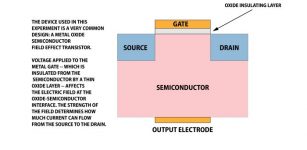Hydrogen Technologies Take Leading Role Toward Net Zero
Eddie Gonzales Jr. – MessageToEagle.com – Achieving Net Zero energy, where the total amount of energy used is equal to the amount of renewable energy created, is closer than ever before, and hydrogen technologies will play an important role in achieving that goal.
Credit: Public Domain
During the AIP Publishing Horizons—Energy Storage and Conversion virtual conference, which will be held Aug. 4-6, Mahieddine Emziane and Paul Blackwell, from the University of Strathclyde, will offer their review of the challenges in research, development, and deployment in hydrogen technologies that are hampering their progress. Their presentation, “Research, development and deployment needs and opportunities for a massive deployment of hydrogen technologies,” will be available during the three-day conference.
Electrification and hydrogen (H2) technologies are the main drivers toward a Net Zero plan, but needs and gaps in those areas need to be addressed before a true hydrogen-powered future can take form.
“Reaching Net Zero globally by midcentury is challenging but feasible if all the conditions are met,” Emziane said. “We are starting our journey and we need to accelerate the pace of our energy transition. H2 technologies will definitely help in this process, given that H2 is a versatile energy carrier that can be used to both generate and store energy.”
Emziane said different barriers are holding back the global scaleup and large uptake of hydrogen technologies. These barriers range from technology and manufacturing to economics, policy, infrastructure, and user acceptance, but there are many opportunities in the global public and private sectors for research, development, and deployment collaboration.
“So far, the biggest consumption of H2 has been in industry, especially the petrochemical sector,” Emziane said. “However, as H2 technologies become more relevant and accessible technically as well as economically, other sectors, like transportation, power, buildings, and industrial processes, will increasingly be adopting them.”
The presentation will cover the entire hydrogen value chain, from production and storage to distribution and end uses, and span the entire technology readiness level spectrum.
Source: American Institute of Physics
Written by Eddie Gonzales Jr. MessageToEagle.com Staff











